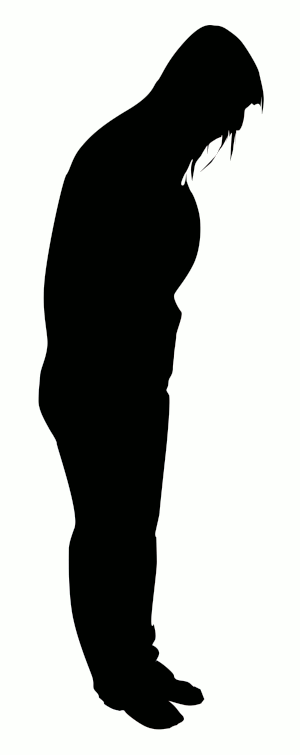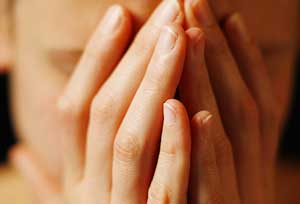Counselling For Depression In London


Depression Or Something Else? At times we all suffer from ordinary unhappiness as a response to what's happening in our life and so too can depression be viewed not as an illness, more a response. There is a misleading tendency to use the word depression (or some depressive episode) as a catch-all term for many experiences - self-doubt, overwhelment, burnout, grief (which is different to depression) being in touch with gloomy truths, in limbo, having low spirits, languishing, experiencing isolation (or isolating ourselves), mood dips, moodiness and low moods, low energy, anhedonia (not taking pleasure in things), confusion, feeling glum, demoralised, run-down, bereft, morose, moping, sombre, miserable, malaise, gloomy, resigned, unmotivated, unexcited, dejected, blue (the "blues"), points of feeling low, unfulfilled, lost, stuck in a rut or simply not enjoying things the way we used to, being irritable, restless or tearful. Different to depression we may experience ingrained anguish, despair, despondency, disillusionment, disappointment, pessimism, boredom, mundaneness, apathy, indifference, lethargy, tiredness, fatigue, sadness, nihilism, the soulful qualities of sorrow, melancholy. We may call it depression yet actually struggle with finding helpful ways to manage our anxiety, respond to our sensitivities. We may have become selfless or have put our life on hold as if watching ourself from afar. In the past, we may have been excluded by others, made some mistakes, feel guilty or ashamed about something, blaming & dragging ourselves down. Some of us may not be depressed, more empty, lonely. Yet the lonelier we feel, suffering in silence, the more depressed we may become, as if stuck in glue. Others may be experiencing depression on the surface, yet underneath, there may often live other unaddressed feelings (or certain medical conditions, e.g. hypoglycaemia). Whatever connotations or labels we use (e.g. mild depression - dysthamia), some of us may feel depressed and experience some of these symptoms and struggle to go back up again. We may blame ourselves, feel lost, confused, have a sense of pointlessness, meaninglessness, wondering what's real (which may also be related to authentic core, existential life feelings), viewing the future as bleak - fearing it, having a sense of dread or helplessness, as if our very spirit is crushed and beauty no longer exists. We may also find it hard to sleep or indeed sleep more, struggling to arise (see also Sleep Problems, Insomnia). Our eyes will deaden, as if there is no life in them. Decision making may be a problem, we may have lost our appetite or comfort eat, or turn to unhelpful habits or addictions to lift our all-consuming mood. Depressed, it can be a if we lose our shape, have no edges, experience lost enjoyment in things, taking much more time to do things. Sometimes anything is a struggle. Yet depleted energy itself can be why we feel depressed. (See also Counselling For When We Isolate Ourselves - Tuning In, Opening Up & Protecting Ourselves When We Need To)
For too long there has been a taboo about talking about some important issues. If you were anxious,William Mountbatten-Windsor
it's because you were weak. If you couldn't cope with whatever life threw at you, it's because you were failing.
Successful strong people don't suffer like that, do they? But of course - we all do. It's just that few of us speak about it.
There may be a time and place for the stiff upper lip but not at the expense of your health.

Depression Therapy Ups & downs, slumps, low points in human life are inevitable. How others, our culture, and us respond to depression impacts upon us. Depression can hold a huge taboo for some. There can be a stigma attached to needing or asking for depression help as if somehow we should suffer alone or seek solace in unhelpful habits or addictions. Depression may be sometimes so medicalised, that the person inside experiencing this gets overlooked. (Medication can help some people with depression yet can camouflage underlying factors.) We can all get depressed from time to time, and when we are, nothing can feel worse than someone (although well meaning) telling us to cheer up, putting pressure on us to always stay positive through toxic positivity, change our attitude, keep busy, start living, that we should be grateful. Sometimes before we can get in touch with the things that support our happiness, wellbeing, flexibility, we may need to let our depression pass. Fragile human beings that we are, we are all susceptible & vulnerable to depression, each person has a set of reactions impacting their spirits and we may be seeking depression support. It can seem as if layers, waves of depression come upon us and for others be more like a constant companion with little respite. It can be as if we are surrounded by a stifling, suffocating fog that sits around us - feeling blue or feeling nothing. Our depression can casts a long shadow over us, and can be like a big weight on our shoulders. We can feel utterly alone, blame ourselves, unable to receive comfort from others or comfort our self. Some may have tried to cure depression on the surface, yet underlying issues may remain. So I am interested in understanding, exploring with you exactly what it is you are experiencing, how it's like for you, alongside supporting you in finding, facilitating your own way through your depression - however long it takes, so it doesn't dominate your life so much where health is viewed as one - not separated out to mental health, physical health, emotional health, etc. (see also Body, Feelings, Mind, Epigenetics, Environmental Connection, Self-Regulation). Therapy for depression, depression treatment or counselling for depression takes into consideration your individual circumstances. (See Depression Help, Depression Treatment, Depression Cure)
Depression is also smaller than you. Always, it is smaller than you, even when it feels vast. It operates within you, you do not operate within it. It may be a dark cloud passing across the sky but - if that is the metaphor - you are the sky. You were there before it. And the cloud can't exist without the sky, but the sky can exist without the cloud.Matt Haig

Feeling Stuck Sometimes feeling low, depressed, can have cyclical patterns, which can be explored in the counselling for depression, and for others feeling flat, depressed, can be more of a permanent state, where life can feel like a trudge, have no meaning. We may feel immersed in some sort of inertia, hermitting ourselves away, as if in some dark tunnel, falling into an abyss, where life feels bleak. Even small things may weigh us down, and they may become like mountains, where everything is an effort. We may have become easily defeated. Things may ferment inside of us - for some this may include our deep grief. We may struggle to acknowledge many situations as temporary. We may choose to focus on things which continue to make us unhappy. It may be even harder to find one positive thing from our situation. Depression from situations (sometimes known as situational depression - when life temporarily gets us down, maybe through our work, relationship breakup, illness) can linger and our fear, sadness, sense of hopelessness can develop into a form of more major depression. Some of us may have a tendency to sink into our feelings, remaining lost or stuck, as depression permeates our world. As if we have little to wake up for, we can go through the motions, yet we struggle to choose to feel anything else or do something worthwhile to take us out of it. Relating with others may become more difficult. Unfocused, for some it can seem as if we are almost in a trance-like state or stuck down a dark well, unable to find a way out. It can be hard to think about our future, plan our future. Stuck in our head, we may struggle to think rationally, with an open mind. Our depression may also affect our imagination, inspiration & creativity. We may have abandoned ourselves and taking responsibility for us may seem too much. Our depression & demeanour can disempower us. The depression counselling can explore what is happening inside. Struggling to be flexible, it can be as if our depression is embedded in us, as if our "depression template" is fixed, that "our" depression is our only identity. We may have got so used to feeling depressed - that it is so familiar, we may no longer know what else is there or what to replace it with, struggling to acknowledge that we don't have to remain stuck in our suffering from our past, that we can respond to it. We all hold on to things (and scripts), which no longer help us and letting go, surrendering to what is may be a challenge for some, yet may bring us peace of mind. It can be daunting for some to change what we need to change, especially the more we think about it. Just doing it can give us momentum to continue it. The therapy for depression, counselling for depression, may also investigate the nature of your will, where it gets stuck, paralysis and drags you down & how you use it, how else you might want to choose to view things, whether you are willing to seek out new stimulation, including moving your body (see also "Freeze" reaction). Counselling & psychotherapy can also explore what is in your control and what isn't.
Action does not always bring happiness. But there is no happiness without action.Benjamin Disraeli


Our Inner World Living with depression, we may have reached a stage when we can't be bothered, are on a treadmill, simply going through the motions, half-living, zombie-like, getting by & have lost our spark. (And losing our spark, maybe running out of fuel, may be a message to us that we need a different type of fuel now in our life.) Lost, stuck we may feel blocked, have numbed our feelings, struggle to soothe ourselves. Our energy may be low and there can be a heaviness, lethargy to us, as if we're treading water, we've checked out of the life we once knew. Nothing is quite right for us, life may seem a burden, soul-destroying. Despondent, even the small things may now bother us as we dwell on the negative. The last thing we may want to do is to "put on a happy face". Closed down, it can be as if no one quite "gets" us, we don't "get" others or even ourselves. We may have become self-persecutory. Self-absorbed we may be less engaged in positive activities where things that were once enjoyable, pleasurable, energising now seem arduous. And despite being in the company of others, we can be alone, isolated & trapped, as if we are cocooned with not much getting through, staying with the familiar, retreating - maybe preferring to stay in bed than get up, yet we may also feel in some sort of or in a prison. We may be spending our time under the duvet. And when we do manage to get out of bed (which may be a challenge in itself and in our muffled world it can even be too much to shake the duvet), we may wake up tired as our energy blocks things. Getting out of bed may be a problem, as if the sky is about to fall on us - it is said that "the darkest hour is just before dawn", yet our "dawn" may struggle to emerge through the darkness (see also Allowing, Embracing, Integrating What We Ignore - Our Shadow, Light & Dark Side). We can picture things going very bad, yet believe we are unable to act. Trapped as if in a cul-de-sac we may struggle to find alternative ways out, as our limiting choices diminish. (And it is argued that depression is also a choice, a voluntary state.) In our inner world, the way we respond to negative thoughts & feelings may not always be helpful. We may find it hard to make decisions, deal with things and may put things off, wanting to escape from responsibilities. Overthinking, self-focused and empty inside, we may have become very self-critical, churning unhelpful thoughts, beliefs over and over. What once were challenges may now be experienced as problems which magnify (or we as insurmountable) when feeling depressed. Drawn to what pulls us down, nothing seems to comfort us, give us pleasure. Grey or dark inside & outside, storm clouds surround us and we struggle to acknowledge that the storm (or nihilistic beliefs) will pass or fail to see the horizon, as we seek depression help, "depression cure" or depression treatment. Things, even our own accomplishments, may become meaningless (see also Existential Despair, Existential Anger, Existential Depression). The simplest of activities become onerous. Worrying about coping with change and crushing anything good, we may struggle to open our heart, be compassionate to us & others. Overwhelmed, some of these feelings we experience now may also be connected to earlier wounded feelings in our life, including our shame & guilt, anxiety, self-judgement & anger (which when turned inwards can manifest as depression). In the depression counselling we may want to talk about what is happening inside, our triggers, hooks, buttons which get pressed, life scripts, repetition compulsion. We may want to explore making any connections between getting depressed and what we now tell ourselves (e.g. we ought to be coping better, it's weak to be depressed, we are mad). We may be regularly exposing ourselves to what stresses us, which compounds any feelings of depression. In our depressed state we may believe that everything has always been miserable. We may want to be at ease, at peace with who we are, happy in our own skin. Taking our time, telling our own story of what brought us to this point in our life, may be an essential part of the depression therapy process.
If there's one thing I've learned, it's this: We all want everything to be okay. We don't even wish so much for fantastic or marvellous or outstanding. We will happily settle for okay, because most of the time, okay is enough.David Levithan
Form Of Protest For some of us, it can seem as if we have nowhere else to go with what's happened to us in the world, our existence. It can be as if at some level we may (often unconsciously) show how we feel as a form of protest, or refusal to go along with certain things - our way of saying "No" to something or that something in our life is plainly just not right. This too can be explored in the depression counselling.
Hello darkness, my old friend.Paul Simon

Associated Feelings Living on autopilot, it can be as if we experience "there is no me" or "we don't want to be a me", have little feeling, sensations, just numbness, disconnection maybe a tiredness of being in the world - a weariness, miserableness as we reduce ourselves to smaller than we are, avoiding life's experiences (which may have a link with our avoidant attachment style). Even when in the company of, surrounded by others, we can feel utterly alone, lonely. Fear can be a familiar companion to our depression symptoms. Hope can seem far off in the distance. When depressed our esteem plummets as if we believe we are not good enough. We may have difficulties concentrating or making decisions and feel tired of feeling tired. We can feel frightened, blinded by despair (and we can sink further into depression), feeling guilty, self-blaming, angry or bitter. We may dwell on the past, as if still stuck there in some ways or we may dwell upon continuous unhelpful thoughts now, which we may find hard to filter. Having endured past painful experiences we may now believe we are helpless in many situations, have developed a sense of learnt helplessness or learned helplessness - a term coined by Martin Seligman and this can be linked to feeling like a victim inside. This may influence our unhelpful habitual thinking patterns, sense of impending doom, pessimism, shame, life script, negative attitude. Yet counter intuitively as we own our helplessness from a different place and not let it rule our life - this can empower us. Trapped in a narrow corner of our world, we can't run away from ourself and can find it hard to comfort ourself, receive comfort from another or reach out to others to comfort or give to them. Inside we may feel shattered, inconsolable as if experiencing dark nights of the soul. Self-loathing may set in. What makes some people happy doesn't work for others, and the depression therapy or depression counselling can review with you how you emotionally respond when you are not happy and what depression means for you personally.
One does not become enlightened by imagining figures of light, but by making the darkness conscious.Carl Jung
Anxiety & Depression There is often a circular link between depression and anxiety, when if we stop being busy worrying about things, getting anxious, we can end up being deflated, feeling depressed, so we may then return again to worry, anxiety overload.
There is only one way to happiness and that is to cease worrying about things which are beyond the power of our will.Epictetus

Blaming Ourselves For Our Depression Some of us can fall into the trap of blaming ourselves for what has befallen us. Caught in this way of beating ourself up, may be in ever-decreasing circles, we can become our own worst enemy, guilty, ashamed. The depression counselling and therapy for depression also considers the effects of blaming ourselves, self-accusation and how this can lead to or compound our depression as we become depressed for being depressed, in a downward spiral. Self-forgiveness may be in short supply.
I myself am the enemy who must be loved.Carl Jung
Blaming Others, Circumstances When things don't go our way it can be all too easy to blame others, which can be a way of handing over our happiness into the hands of others. Keeping happiness in our own hands, we may want to consider no longer blaming others, circumstances, choosing to remain happy, no matter what. And if we are happy, we may be more in a position to work out what we can do about things not going our own way.
I know you think this world is too dark to even dream in colour,Andrea Gibson
but I've seen flowers bloom at midnight.
I've seen kites fly in grey skies
and they were real close to looking like the sunrise,
and sometime it takes the most wounded wings
the most broken things
to notice how strong the breeze is,
how precious the flight.

Our Perception When Feeling Depressed Depression can internalise, narrow our view of the world around us. We can get used to training ourselves in seeing what we want to see, holding onto what we would like to believe makes us happy (see also Thoughts, Beliefs, Perception, Attitude). Colours in our life may have faded to grey, as if this is the first & only colour we tend to see. The lens we view our reality with may become greyer, darker. We may also allow challenges to overwhelm us, struggling to put them into proportion, allowing them to pass. Preoccupied or overwhelmed, our world can seem stark & dark, that it can be hard to experience or appreciate, what is good, the daily things in front of us, moment by moment & our own intrinsic worth & state of being. Our concept of time may alter as if our days merge into one, that we daydream. We may struggle to allow in any positive thoughts, overlooking valuing even small things, which make us happy. Sometimes we may catch ourselves feeling OK or even happy, but struggle what to do with it, or even believe it, sweeping this "OK part of us" under the carpet again, as if we aren't supposed to be happy. It may be as if we have decided to close down a part of our life and the depression therapy can explore what goes on inside that we do this. There may be an uncomfortable discrepancy between what we thought our life should have been & what it actually is. Related to this, we may think in terms of whether we deserve or don't deserve to be happy, which can stop us experiencing happiness in the moment. Shifting our priorities, changing our expectations, so we become less disappointed may support us. Noticing, having a willingness to challenge our own perceptions & attitudes, may also help. These issues can unfold in the depression counselling & depression therapy, so we are not so dominated by depression. We may also want to examine what personally stops us having a happier life, where simply thinking positively, toxic positivity may not be enough.
This is a very important reflection for this time, when there are so many quarrels and wars going on because people cannot agree on anything. The Chinese against the Russians, the Americans against the Soviets, and on it goes. Over what? What are they fighting about? About their perceptions of the world. "This is my land and I want it this way. I want this kind of government, and this kind of political and economic system" and it goes on and on. It goes on to the point where we slaughter and torture until we destroy the land we are trying to liberate, and enslave or confuse all the people we are trying to free. Why? Because of not understanding the way things are.from Amaravati Buddhist monastery writing of the meditation teachings of Ajahn Sumedho

Change With our human frailty, given certain circumstances all of us can experience depression symptoms, or breakdown, as our bodies collapse, things seem to take up more energy, where we lose our vitality and we may seek depression help or depression treatment. We all have weak spots and depression can be a normal & appropriate reaction to events in the world (see Universal Sadness). Starkness & bleakness can visit us all. Yet when depression becomes familiar & we get stuck in it, it may be a sign that something needs to change, yet we may be resisting this. We may have ended up retreating, becoming overly cautious, safe and secure which hinders our growth, development and struggle to find our way forward. Sometimes sinking into our feelings, indulging in them, feeling sorry for ourselves, can be exactly what we need to do, mourning what we need to mourn. (It can be as if we've been living our life with the handbrake on.) Slowly changing this when we are willing & ready, moving our energy differently, noticing windows of change, however subtle, may support us. Learning to explore things, be curious again, and acting upon our curiosity, may help us grow, give us a sense of meaning. We may have an impossible objective to be happy always, a more realistic objective may be to promote our well-being, not only through external factors like material possessions, having a new romantic partner but connecting more to our own intrinsic sense of worth. Our sense of worth may be battered, bruised and it can be as if we lose this entirely or basing our worth on factors outside of ourself. (A few of us may even take some sort of comfort, basing our self-worth on our depression, as if this is the only option available, that the problem, and therefore we, are not worth anyone else's efforts, as if there is no way out.) We may exclude others or try to get them to do the impossible - give us everything, trying to feed off their worth, giving ourselves none of our own. We may have rejected, abandoned ourself and others end up doing the same to us. Therapy for depression or depression counselling considers these & other factors with you.
I lie there and wait, and remind myself over and over that it doesn't last forever. That there will be another day and after that, yet another day. One of those days, I'll get up and eat breakfast and feel okay.E. Lockhart, "We Were Liars"

Grieving Our Unhappiness Some may prefer, or just be used to, staying in the familiar dark - at least it's known, rather than risking moving towards the light. If we are sensitive inside, and things get too much or are not quite right, then we may need to pay attention to this. And, paradoxically, as we grieve our unhappiness, embracing that we are not happy, maybe allowing our tears to flow, a different space may open up for a chink of light to come in. A challenge may be to manage or mourn our feelings (sense of failure, sadness, regrets or so called negative emotions) between moments of happiness. Some may be grieving the loss of our past, others old traumas. Some of us may hold climate grief, existential grief. Compassionately managing endings, loss and grief in our life may be important. Depression counselling or therapy for depression explores the views we hold and personal experiences of happiness, joy, suffering & love, what gives us peace of mind. What makes us feel in the flow, active, busy, absorbed & involved in an activity, rediscovering our passions and trying new things, sharing our interests with others, attending to our needs to belong (which may make us more connected, happier than power, money, success), having a sense of purpose - however small, can dissolve our unhappiness. The impact of the unconscious, which has the potential to be regressive or progressive, may also be considered. (See also Grieving To Let Go)
The true secret of happiness lies in the taking a genuine interest in all the details of daily life.William Morris

Fear Of Happiness So afraid of pain, we may suppress a lot of our feelings, putting a lid on them, including happiness. ("When life gives you rain, jump in muddy puddles" - is one response.) Some of us may fear being happy because holding on to our sense of impending doom (or worrying to stop bad things happening) we can't bear any pain. We may struggle to bear and embrace life's highs/lows, suffering and love in our heart. The therapy may explore how we can compassionately enable all our feelings, learn what they are telling us. Counselling and psychotherapy for depression can explore this further.
Happiness is not having what you want. It is wanting what you have.Hyman Schachtel

Thoughts & Beliefs About Happiness, Unhappiness Who hasn't been unhappy in their life? - It is not every day we experience happiness and there is no one formula for happiness. We or aspects of society may have unhelpful beliefs, expectations, messages about happiness, as if we are not supposed to experience grief, doubt, confusion or shame. And some of these experiences may be connected to what happened when we were naturally happy when younger. Our happiness may have got crushed, we may have felt ridiculed, humiliated, and closed our happiness down, vowing never to be happy or be very mistrusting when we are. We may also believe that we would rather be right than happy. (Others may hold a belief that we can only be happy when others around us are happy.) Therapy for depression and counselling for depression may therefore include looking at our beliefs and backstory about happiness. We may believe that we should always be happy, never be unhappy, struggling to come to terms with accepting suffering as a part of our human condition. Finding our way through this period of introversion, where we can also retreat to reflect & learn about the naturalness of suffering, what this might mean, its value, purpose can test us. The depression therapy can support you in this. We may need to take some pressure off us to be happy (constantly chasing happiness - which ironically may take us further away from it and feel disillusioned), especially if we believe we should be perfectly happy - everything must be just right, that happiness can be permanently attained (see also Thoughts, Beliefs, Perception, Attitude). We may believe that it is the getting of love where we find happiness, yet not the giving. We may be unhelpfully searching for happiness only through exciting, exhilarating extraordinary experiences, many of which are transitory, overlooking that happiness can be experienced in the small & simple things of everyday life. What we want and our attachment to things or people (see also Identifying, Disidentifying & Integrating All Aspects Of Us) outside of us may prevent our happiness, sense of fulfillment and we may be overlooking what we have (see also Intrinsic Self-Worth - Valuing Our True Worth, Who We Are). Not making others responsible for our own happiness may be important. A further limiting belief we may hold is that happiness is something outside of us (or through shortcuts), not inside. We may view happiness as a commodity - something we have or don't have, rather than something that comes from within, so going within contacts our inner happiness, as we engage with thoughts that empower us. Spiritual wellbeing for some can bring inner happiness. We may struggle to savour or be consciously aware of our quick fix bursts of pleasure or low intensity pleasures, like comfort, contentment, harmony, amusement, or higher pleasures (many of which are transitory) like being glad, humorous, enthusiastic, ascending to excitement, elation, euphoria, bliss. However, basing our self-worth externally, we may hold on to a belief that only certain things, objects (alcohol, chocolate, computer, a compliment, habits or addictions, etc.), can make us happy (see also Letting Go Of Our Attachments, Over-Identifications). Yet when we rapidly repeat these indulgences, their impact reduces and can have negative consequences like craving or addiction. This may be associated to hoodwinking ourself through momentary happiness, which is transient. Some of us may believe that success makes us happy, that happiness is something to be possessed - what we need to get, as if it is a permanent state and should last forever. Others may worry we ought to be happier, which may in fact compound our own unhappiness. "Do we have to wait until we are on our death bed before we value what's important for us?", we may ask. We may be fixed on believing that happiness can only be found in a certain way, that our current difficulties, circumstances, anxiety must rule out being happy in all moments, overlooking other possible ways to be happy or experience peace of mind. Disappointed, we may also believe that we can't be happy or joyful if:
- Our happiness is not a permanent state (and struggle to cope in its absence)
- We aren't excited
- We haven't anyone to share it with or we have based our happiness on our partner or the relationship
- We haven't earned or manufactured our happiness
- We haven't got wealth, fortune, success (see also Measures Of Success)
- Future goals, the outcome we want is not achieved
- We haven't done that we should have by now, it is too late, we are too old (see also Existential Therapy London)
- We may have failed at something, made mistakes
- Our life isn't going the way we want it to, the way it should be
- That happiness can only be found somewhere outside of ourself
- We may have pain, hurt, suffering in our life
- There are adversities, pitfalls in our life
- Something bad is happening in our life & everything is not how we want it right now
- Someone around us is in a bad mood or they don't acknowledge our happiness
- Someone close to us has died, or something precious we really valued (a possession, belief) has been lost
- We let go, because others (or indeed us) critically judge us
- We have forgotten or don't know how to be happy any more
- That we are not stimulated, on a high or must get our happiness from outside
- We adversely compare current experiences of happiness, contentment with the past ones, believing from old memories that happiness should be a certain way
- We are at peace, calm
- We are committed to our happiness
- We are not self-sufficient (see also Getting Our Basic Dependency Needs Met In A Healthy, Loving Relationship)
The secret to a rich life is to have more beginnings than endings.David Weinbaum
Pursuing Our Goals & Achieving Things Goals and plans are important in life (as may changing and implementing them), yet we may have a fixed goal of believing we will be happy when "this will happen", it will be all right when "that will happen" (and have further endless lists of goals). It may be a long wait. Endlessly pursuing happiness - trying to get all our goals met, yet not getting there or enjoying them, may be a pattern as if our very identity is dependent on it. We may unhelpfully define our happiness based on achieving our goals, which can be self-defeating. Building, maintaining supportive routines, habits - however small can give us some sense of purpose. Being contented, accepting what is, taking pauses & quality time to work out what happiness truly means for us, knowing what is right for us - what truly makes us happy, can let us off the hook, so we don't pressurise ourself to always be happy. It may compound our depression if we have a goal to be happy, which is a generalised, hard to visualise goal. Some may find that it helps us when we make our goals more specific (e.g. "I will do some of form daily exercise - however small and visualise what forms this takes"). We may believe that we have to achieve our goals to be happy, that happiness is only achieved through achievements, delaying our happiness based on achievement (and even if we do achieve something, we may struggle to enjoy being happy - instantly striving for the next achievement, so enjoying our achievement before reaching for the next one may be important for us). We may also believe that happiness is a goal to be achieved, rather than an emotion, which is a by-product of what we do and how we give, that happiness is in us.
Happiness is the absence of the striving for happiness.Zhuangzi
Pursuing Happiness Happiness can feel elusive and chasing happiness can be counter-productive, if we tend to overly focus more and more on ourselves. Focusing on the happiness of others can (counter-intuitively for some) bring us much happiness. Paradoxically, pursuing happiness and trying to develop our wellbeing, can take us further away from happiness. We may have restricting beliefs that others are responsible for our happiness - that they have to do things, which may keep us in victimhood, martyrdom, that happiness is only what we have, not what we are, that happiness (and pursuit of happiness) is a destination rather than a journey. Happiness is not reliant on getting result and we may struggle to acknowledge that happiness is also a choice we make and can be found along the way (through the things we experience on our journey), not dependent on reaching the end of our goal (or destination). We may overlook that happiness lives in small things, mutual care, laughter, enjoying nature, good food, rewarding work. We can be so busy working out, evaluating what it takes to be happy (e.g. our life, career paths, partners) that we overlook moments, activities, which makes us happy or struggle to let go of things, that make us unhappy. We may expect too much from happiness, believing that it is the intensity of happiness, rather than frequency that makes us happy. And some of us connect inner happiness to spiritual wellbeing.
Happiness is like a butterfly, the more you chase it, the more it will elude you but if you turn your attention to other things,Henry David Thoreau
it will come and sit softly on your shoulder.
Our Happiness, General Wellbeing & Flexibility Of happiness, William Feather wrote, "Plenty of people miss their share of happiness, not because they never found it, but because they didn't stop to enjoy it." Happiness tends to be more short-lived as we move from one thing to the next that fulfils us, or we get what we want. Being happy can be experienced when good things happen, whereas joy is experienced when we are open-hearted or for others, when connected to a spiritual source, that fills up our heart and soul with smile, belly laughter. All of us can improve our sense of wellbeing, inner equilibrium and connectedness - having feelings of contentment, enjoyment, confidence & interactions in the world, improving our relationships with others. And when we are thriving, so too may our relationship. Happiness nourishes us. We may want to flexibly explore what promotes & enhances & boosts our well-being, sense of intrinsic happiness, elevated moods - cultivating them, what makes us flourish even though it may not be every day we experience happiness. Interrupting any inflexible problem patterns, which erode our happiness - ones we linger on, may help us (see also Rigid Boundaries). Happiness comes from within (linked to our intrinsic self-worth) and is our state of being - something within. So, when we go within we can experience happiness which is as much psychological as emotional, producing endorphins . Happiness is also a subjective experience and enjoying simple things can make us happy. What makes one person happy, may not make another, yet there are often commonalities and interconnections to our overall health, e.g. our physical, emotional, sexual, psychological, spiritual wellbeing alongside taking responsibility for our happiness. The counselling & psychotherapy can explore these influences, what prevents, helps our wellbeing to flow and how we do and don't enhance our sadness, happiness, including:
- Remembering that no one can take away our happiness unless we choose to let them
- Re-visiting the story, narrative we tell ourself
- Rather than trying to strive, achieve, earn our wellbeing, to consider allowing our wellbeing
- Simply doing what we enjoy doing that makes us happy. Do what makes us feel more alive, engage with the world
- Not allowing ourselves to be so influenced & affected by negativity (this for example may include being in touch with supportive others - building a circle of people around us.
- No longer postponing our happiness for some future, deferring it "that is for tomorrow, not now", "I will be happy when...", no longer waiting for the right moment which never seems to arrive. No longer overlooking that the possibility of our time to be happy is here, right now before our next source of anxiety consumes our mind. Recognising opportunities, however small, taking action so our future begins by what we do in the moment.
- Being authentic (without toxic positivity), giving ourselves permission to be happy, moment by moment, anchoring ourself in our own positive daily experiences (the ones, however minimal or significant, we have now), doing what's natural & right
- Putting trust in us & others, being compassionate, developing stronger social connections
- No longer unhealthily comparing ourself to others
- Letting go of unmet expectations, regrets
- Being accepting of ourselves & others
- Being real, authentic
- Being in touch with our generosity, interests, sharing these with others, getting involved in things we care about (allowing ourselves to care and be encouraging), our passions, getting out in the fresh air & sunshine, being in nature and with animals, being in touch with what connects us, having some close friends, immersing ourselves, focusing in the moment
- Embracing happiness when those close to us are happy and we make them happy. No longer missing out on any joy or happiness around the corner - closer to us than we imagined, even allowing ourselves to become passionate, excited by things again
- Focusing on others' well-being, being less individualistic, materialistic. Reaching out and being kind to us & others. Offering unexpected compliments, the warmth of touch or happiness can have a ripple effect as we open our heart, experience joy, choose to be open to loving, love & we may want consider offering being in service towards others, take responsibility towards contributing to other people's happiness, which in turn may make us happier, hopeful
- Being emotionally connected with others
- Allowing, experiencing moments of love, joy, often through gratitude. Choosing to appreciate small & simple things, beauty, what we have, what's right in our life, being mindful that we are happy - capturing the moment, having grace, enjoying, savouring the simple pleasures in life, treats, etc., any achievements, anything positive that comes our way that we bring out in ourselves - however small (someone's kindness, a warm look, a compliment, a connection, an embrace, humour) - not taking ourselves too seriously and able to laugh at ourself. Being in touch with what makes us content, carefree. These gestures can be infectious and the more we give and share them, the more we receive, increasing our own capacity to be happy.
- Happiness multiplies when the more we give, the more we tend to receive, through sharing our happiness with others, increasing our own capacity to be happy
- Noticing & utilising all our own senses & engaging in life around us, enjoying evocative smells, savouring our favourite tastes, food & drink, visiting stimulating places, views, choosing the right feel-good music, dance, physical contact (having warm, evocative fabrics, clothes that feel good to wear, pictures, paintings), engaging in every moment, giving our heart & attention to these experiences, doing what personally uplifts our spirits and makes us feel good by creating the right atmospheres around us, our home, being with supportive people, getting involved & having some meaningful conversations, being tactile
- Giving ourselves permission, finding something in us to lighten up, being playful, rediscovering our sense of fun, silliness, ridiculousness, maybe the innocence we had as a child - what we enjoyed
- Recognising the value of moving our body, stretching ourselves & exercise, good nutrition, lifestyle & sleep. Experimenting with changing our body posture, physical expressions.
- Stretching ourselves through work, movement, creativity, social interactions, etc.
- Listening to & following our momentum
- Being open to new stimulation, trying new things, valuing spontaneity & the unusual, allowing us to be surprised, living in the moment and engaged in whatever we are doing and with others (see also Navigating Between Being & Doing), living with the flow, tuning in to what enlivens us, being curious, exploring what might be
- Changing our environment, circumstances, situation in small (building in little things that makes us happy - small bliss moments) or big ways. Our willingness to choose a different or long way home, embrace challenges, however small, live our life to our full potential.
- Rediscovering, pursuing old & new passions, interests, connections & making plans for them to happen & following them through so they do
- Remembering & being in touch with what used to make us happy - fostering this now
- Experimenting with transforming any repetition compulsion, our life narratives, scripts & exploring early unconscious agreements, beliefs (see also Trauma)
- Understanding our strengths, the value of vulnerabilities, tenderness, ability to forgive, acceptance that life isn't (and we, others aren't) perfect
- Looking after ourself & others
- Work-life integration. Balancing our life & lifestyle by living it connected to our purpose, alongside enjoying what's pleasurable, relishing & reflecting upon our experiences.
- Learning to experience our experience, without cutting off, closing down
- Tending to what boosts our esteem, sense of confidence
- Being in touch with our values, having a sense of meanings, purpose
- Being centred in our own ground, cultivating our sense of personal resilience & boundaries, willing to learn from setbacks
- Being in touch with our integrity
- Placing faith in our own worth
- Tuning into our intentions
- Protecting our personal power
- Having a sense of autonomy, control over our life
- Having an element of self-control, building & maintaining supportive habits
- Being equipped to respond & embrace our moods, life's sufferings
- Being in touch with what moves us
- Feeling safe enough & living a more courageous life, occasionally taking fresh, small steps or risks
- Accomplishing things however small - both for us and in making the world a better place
- No longer feeling guilty when feeling happy
- Being fulfilled
- Listening
- Letting go of what we need to let go of
- Being in a pleasurable space or place to be quiet, watching the world go by, reflect
- Being in touch with our essence, energy
- Peace of mind
Love is that condition in which the happiness of another person is essential to your own...Robert A. Heinlein
Fulfillment, Unfulfillment We may be happy but unfulfilled (See also Unfulfilled Potential) as if we want to "stop the world, I want to get off", as Irving Heller once said. What truly fulfils us may be something we want to address. Fulfillment for some can be embracing our struggles, rising to challenges, contributing to others and our own self-improvement, so we can live our life to our full potential.
Dying is easy, it's living that scares me to death.Annie Lennox
Psychological Wellbeing, Psychological Health, Psychological Resilience, Mental Wellbeing, Mental Resilience Wellbeing is connected to yet not the same as physical health. Our wellbeing, similar to grace, can be viewed as a natural state of our (often repressed, suppressed) inner child. We could also view our psychological wellbeing, psychological health as looking after, responding to different aspects of us by taking care of our physical well-being, vitality, moving our body and quality of sleep, our emotional well-being (including allowing, expressing, tolerating so called negative emotions, understanding that disappointments happen and will be overcome, our ability to have fun, be playful), our sexual well-being, our spiritual well-being and the wellbeing of others. (Others' approval, attention, can also support our wellbeing.) How we think & what we believe alongside being in touch with our free will also influences our psychological wellbeing (we may for example be searching for the secret to feel OK only to realise there may not be one). Witnessing kindness and being kind boosts our wellbeing. The therapy may include exploring our own sense of being, our health (including the relationship between our body, feelings, mind) and the totality of who we are alongside our incongruences, e.g. any dissonance between our perception of the world around us and the reality of its intentions. Alongside our emotional resilience the counselling for psychological resilience explores what personally supports our sense of wellbeing, what helps us feel stillness, content and carefree, in the moment, what small steps we can take to boost our spirits. (See also Peace Of Mind, Stilling Our Mind, Contentment, Inner Peace, Internal Calmness - What May Help) And the therapy also explores our psychological resilience. This psychological resilience we have is our personal power and inner strength, which allows us to rise above difficulties & respond to them, be motivated to grow and strengthened by these challenges which supports our esteem and sense of independence. (See also Internal Resilience)
Just remember this: no one can keep you from the second half of your life, except yourself. Nothing can inhibit your second journey, except your own lack of courage, patience and imagination. Your second journey is all yours to walk or to avoid. My conviction is that some falling apart on the first journey is necessary for this to happen, so do not waste a moment of time lamenting poor parenting, lost job, failed relationship, physical handicap, gender identity, economic poverty, or even the tragedy of any kind of abuse. Pain is part of the deal. If you don't walk into the second half of your own life, it is you, who do not want it.Richard Rohr
Value Of Relationships Making connections with others, especially those we love, cultivating & nurturing supportive friendships, enduring meaningful relationships, giving to others, enhances our wellbeing.
There is a pleasure in the pathless woods,George Gordon Byron
There is a rapture on the lonely shore,
There is society where none intrudes,
By the deep Sea, and music in its roar:
I love not Man the less, but Nature more,.

Value Of Nature, Force, Energy, Power & Harmony Of Nature, Natural Resources The invisible, benevolent presence, energy of nature, its power, harmony, beauty and companionship, its giving and receiving, awe and wonder (uncertainty and chaos of life), as can be silence in or out of nature, the galaxy, universe, has a different time and space and is outside of human conflict. The way we humans treat the energy nature as our home, the planet, may concern us and we may overlook that land gives us life, nature is part of every human being, and every person is part of co-creative nature. Whether in stillness, silence or solitude, or whether sharing nature with others, breathing in the fresh air, appreciating sunlight and darkness, the night and day sky, the oceans, landscapes, mountains, winds, interacting and relating closer with the energy of nature and its elements of earth, water, fire, air, ether, getting in touch with the natural world can be uplifting, putting us in touch with ourselves, our senses, sexuality, the wider world and maybe a sense of consciousness where nature, animals are simply in the moment and evolving through evolution, as Darwin would acknowledge. (Observed by Professor Jaak Panksepp, there are instinctual communities in nature, emotional feelings in animals and humans - rage, fear, sexuality and lust, care, panic, grief and play which can trigger the animal human attachment of bonding through engagement, comfort, play and safety). Like us, nature is interdependent on the right conditions to flourish. Bringing nature and beauty into our life, our very being and other human beings - the natural environment (e.g. pets, animals, birds, water, rocks, plants, trees, scenery, the seasons, the so called small things - a mountain view, a sunset, a butterfly, flock of birds, animal sounds, a child's natural laughter) - tuning in and connecting to nature, being in it, part of it, with it, embedding nature in us - everyone and everything around us, participating with it, surrendering to it, trusting it, imagining it, can have a restorative value, nourishing us, teach us there are things we can't change, control, respect and also humbly show us how small we are in its vastness, life's interconnectedness, living under one climate - for we human beings have our own eco systems and are part of a larger eco system. For some the sublimeness of nature, contemplation may lead us to losing a sense of our own importance, spiritual enquiry, connection. Whether it's being in a local park, sitting in nature, experiencing its interconnectedness, beauty, hiking hills, mountains, swimming in lakes or the sea, sensing the universe can give us an experience of awe, wonder, and being in nature for most of us gives us a sense of peace. This connection with the flow of nature - its balance and how it embraces its mutually dependent opposites (e.g. tree branches and roots, cold winter killing unnecessary germs in the soil and the renewal of springtime), sustainability and diversity, changes, transformations and how it rejuvenates through the season's rhythms, ongoing cycles of birth, life, growth, radiance, letting go, death, decay, rebirth and life has evolutionary influences going back to our ancestors and the evolving force of the healing power of nature may put us in touch with existence (and existential dilemmas) our sense of or fears of our own mortality alongside life-meaning love, peak experiences. Some people may acknowledge, that as humans have respects, and rights to life, so too do animals and want to give legal rights to nature, protecting natural entities through trusteeship, stewardship, guardianship - an aspect of Maori living. And others may connect to animism - that spiritual life is everywhere.
We are nature, we come from nature, we return to nature.


Energy & Quality Of Trees The qualities of trees can inspire us. Their presence - like our own, can refresh others, provide support. (The roots of trees, often invisible, can remind us of our own unconscious.) Trees, like us, keep growing no matter what by staying rooted (see also Re-Connecting To Who We Are, Being Grounded & Secure, Inhabiting Our Body, Standing Up For Ourself) and for us - being in our own values, rooting for ourselves and others can be supportive. Trees, like each human being, are unique - some stand tall, whereas others bend and both of these qualities have advantages. Strength is not only about power, it's also about flexibility and ability to soften any hard edges. Visually, the oak tree can seem more resilient than the willow tree, yet its branches will snap in a strong wind, and the whole tree can be uprooted. (It is thought that the oaks in Sevenoaks were planted 800 AD, yet 6 of these mighty oaks were knocked to the ground and only one oak remains, due to a storm.) Sometimes we need to be like an oak tree, upright and strong, yet other times more flexible, resilient, have strength through yielding, knowing what to let go of all that is not essential. Like the grace of the weeping willow tree, we may need to bend with the wind at times, go with the flow with things. And when we are flexible like a willow tree, we can survive life's storms, trusting whatever comes our way, so when there is the unexpected or if someone disagrees with us, we don't have to always meet force with force. We can be inwardly strong and gentle, bends without breaking (see also Flexible Thinking, Cognitive Flexibility), so we don't topple over, waste energy resisting things. We may want to resonate with, also notice our own energy vibration. (See also Soft Living, Living A Soft Life Powerfully)
The oak fought the wind and was broken, the willow bent when it must and survived.Robert Jordan - The Fires of Heaven

Sadness Feeling sad, low at times, is natural and also an appropriate emotion when we experience life's disappointments, regrets, losses. Yet we can be stuck in this when it becomes persistent, severe, especially if we begin to feel like a victim. There are many levels of sadness, some of which may run very deep. We may feel sad for our limitations, sense of brokenness, powerlessness over changing others, including our partner. Sadness may almost feel like grief at times, not necessarily for someone who has died, more about a loss of something deep inside. Being sad keeps us in contact with other people & the wider world as part of our humanity. We may also be sad when we are not in charge of our own life. When we are sad we may also be vulnerable, become fearful. Our sadness can also be viewed as a symptom that we need to complete painful events from our past, grieve our unhappiness, so our vitality can be available in the present. This may point to our unresolved grief, which we may confuse, conflate with depression. Help of a different nature may be necessary. It may take us a while to unhook from that grief we are experiencing. If we hold on to our sadness, we can become uptight & in some level stuck in the past. We may be fearful of releasing & expressing how we feel. We may hold our emotions or tears back, which can block our pain, blocking any possibility of joy. Some of us may block off our sadness (de-press it). The energy it takes to hold in our sadness can be greater than letting it out, for as our sadness arrives almost upon us, it has the potential to pass through us, leaving us. For some, if we are feeling sad, anxious, or helpless, this can turn to depression. Depression counselling takes this into consideration.
And you begin againBarry Manilow, "You Begin Again"
Sometimes you lose, sometimes you win
But you begin again
Even though you're heart is breaking
In time, the sun will shine
And you'll begin again
You'll begin again
Wounded Sadness This sadness can be described as the sadness we can get hooked into, because we may abandon ourselves and struggle to take responsibility & personal care for managing it. We can do anything to avoid this. Some of us may hope that others take care of us or we may care for others in the hope that they do for us (see Codependency (Co-Dependency) - Caretaking). We can be convinced that others (bad luck or even God) are causing our sadness, struggling to attend to our own wounds. We may turn to comfort food, alcohol or other unwanted habits or addictions for solace. Depression therapy, and counselling for depression, may also shed light upon the nature of your own wounds, pain. And the therapy can also explore what else our sadness may be telling us, looking - not just at it but through the other side of it, what we might be seeing, where there may also live wisdom.
Perhaps somewhere, someplace deep inside your being, you have undergone important changes while you were sad.Rainer Maria Rilke
Circumstances, Social Context In Our Lives Sometimes we can get subtly caught feeling like a victim, yet this may not be the case when things go wrong in our life outside of our control. In many cases it is not us who is "sick", but the social context we live in certain social causes, circumstances of our lives (feeling unwell, bereavement, doing work we have little control over, including workplace automation, facing screens, loss of status, having little access to the natural world), unmet basic dependency needs or psychological wellbeing. These experiences can make us feel sad because there is a cause, especially compounded by the way we think about these.
The world we have made as a result of the level of thinking we have done thus farAlbert Einstein
creates problems we cannot solve at the same level of thinking at which we created them.
Universal Sadness A "cure" for depression may not always be possible, especially when it comes to being sad for things that are part of natural living. Certain losses we may never be able to get over completely, though our pain may lessen over time. The depression counselling, therapy for depression acknowledges certain human conditions, which are natural, understandable and beyond depression treatment, because our sadness has a cause (e.g. how the outer world influences, affects our inner world, as our dysfunctional environment affects us and as we are in constant biological, psychological relationship with our environment, these affect our body, brain chemicals in dysfunctional ways influencing how we feel and interact with society - see also Our sense of identity & who we are). However we may need a response to a psychologically dysfunctional society (e.g. climate depression, global grief and our ecological footprint, negative impact of tribal factions, hierarchical, manipulative, bullying systems), that doesn't mean we take things so personally no longer drags us down (so we end up ruminating). We may use this as an excuse to no longer feel good or joy any more or be unable to take action in small, or direct ways on our own or collectively. Many experiences can cause us sadness, including existential despair (which is not the same as depression):
- The depths of our intrinsic feelings
- Being with the person we want to connect with, but can't
- Personal grief & loss through someone dying, loss of financial security, a job, loss of health or loss of face through someone's betrayal, etc.
- The soulful quality of melancholia, like a warm glow
- In touch with the depths of suffering & love
- Romantic love. The romantic philosophy and hope we've held that there is one special person who can make us completely happy
- The attitude we give to aspects of the media which scare, worry, panic, enrage us, yet feel ineffective in our personal actions. Avoiding life affirming energies and instead ingesting 24 hour news, social media addiction.
- Societal disillusionment, pessimism
- Being despondent, inconsolable, connected to existential depression, existential alienation, existential grief or regrets
- Antiquated structures of tribal politics, where conflict & blame dominates
- The effects of blame, criticism, revenge, retaliation overriding goodwill, compassion, kindness, morality
- Missing truth
- Lack of originality, Lost creativity
- Meritocracy without compassion, when there is a belief that those at the top deserve all their success and therefore those at the bottom deserve their failure, are unfortunate, losers
- Witnessing other people's pain & loss through natural disasters or wars
- The misuse of DNA affecting our personal freedom
- Suffering injustices through repressive, corporate, global multi-national & totalitarian, anti-democratic governmental overreaches
- The inflexible, alienating and controlling side of technology (often in the name of optimisation, efficiency and profit), invasive effects of facial recognition, isolating effects or misuse of technologies, computers (e.g. the alienating impact of AI) (see also Internet Accuracy, Security, Online Safety, Privacy & Computer Usage), intrusive surveillance systems, invading our personal privacy, freedoms, out of tune with community, the wider world, as opposed to technology, working with nature, not separate from it or us as human beings
Alcohol & Depression Depression help can be hindered by using alcohol, as our depression symptoms increase. Some of us may use alcohol to raise our mood - to be our depression cure, yet it is a depressant, and in fact lowers our mood. So our alcohol consumption & depression becomes circular (see Addiction Cycle), and the counselling for depression, considers this in our work together. (See also Binge Drinking, Alcoholism & Alcohol Addiction)

Being In The Grip Of Depression Depression can do everything to make us hold on to it (including de-pressing our feelings), and we may be faced with a decision & goal as to which side we choose - our own side - letting go of the grip of depression or remaining in the vice-like grip of depression, squeezing our life energy, vitality. Holding on to this grip may at some level serve us, which can be explored in the depression therapy. Taking it in our hands to loosen, release depression's grip upon us may come slowly at first, and the therapy can support us in this.
Depression is something that should be welcomed because it's a sign that something needs to change.Dorothy Rowe - "Male & Female Depression"
I think, prior to all this, I'd been stuck in an unhelpful pattern for my entire life.

Chink Of Light The above quote indicates depression to be like a gift, which may seem strange & unwelcome to us, when we are feeling depressed, yet often our depression symptoms can be a signal - an indication of something that needs paying attention to, something calling upon us we need to learn from, discover what else lays inside it. Going through depression and coming out the other side can paradoxically for some pave the way towards a more enjoyable, meaningful life. Alongside our vulnerability, loneliness, any uncertainty, our grief or tears (see also Grieving Our Unhappiness), hopelessness, may also live stillness, and dropping into this, slowing down enough to listen, may for some live a small glimmer of possibility, a barely visible chink of light which we can hardly see in the dark - something new emerging, so no matter how dark a moment is, we can connect to a light emanating from our being, allow it to radiate through our presence. We can connect to a seed thought of creativity, a subtly different momentary experience. Nurturing and responding to this can bring about something new - a movement in us, where through our blinding despair, hope may emerge. We may decide to try out or risk something new or different, however small. It could a recipe, poem, drawing or painting, a dance or exercise, a need to connect, interact, which lifts our spirits.
The wound is the place where the Light enters you.Rumi

Depression Help, Depression Treatment, Depression Cure Viewing depression treatment, depression help as a 100 per cent fool proof depression cure may not always be helpful. Each of us have our own sticking points, and our own narrative for how we got to the place we are in now. So depression help, "depression cure" or depression treatment for one may not "cure depression" or help depression for another. The counselling for depression doesn't ignore the negative or believe that we should simply hold a positive attitude through toxic positivity (see also Suffering & Love). We may have curled up away from our pain. Uncurling ourselves, finding our way through our spiralling pain, tolerating it and finding out what it personally means for us, may also be important. The very expectations we have for "depression cure", "depression treatment", "depression help" can also be explored in our work together. We may for example believe that our depression is innately us and not something apart from us. It may be important to acknowledge that depression is an experience, it is not a reflection of who we are, our self - no longer forsaking our self and all of who we are (see also Identifying, Disidentifying & Integrating All Aspects Of Us).
If you can't fly then run,Martin Luther King Jr.
if you can't run then walk,
if you can't walk then crawl,
but whatever you do
you have to keep moving forward.

Supporting Someone With Depression When someone close to us is depressed we may feel helpless or clueless, really wanting to help them, fix things, make things better. Depression can take its toll on us and the relationship. When someone is depressed and are open to being help, things can shift. However, we can't take responsibility for how others treat themselves, neither can we make them take responsibility. If they have no intention of learning to take care of themselves, we may need to accept that this is their choice to abandon themselves. Looking after our own wellbeing and taking care of ourselves in order to be a role model, compassionate, there for others, letting them know we care about them and are available to help if they want. We may find it hard to always understand & empathise what they are going through. At times we may feel uncared for by them, unloved, unwanted, taking their symptoms personally - even blaming ourselves at times. And just patiently being there (without judging, criticising, comparing or necessarily doing or saying anything) by someone's side and listening, even if we feel pushed away, can be all they need and help them towards healing. Sometimes when the moment is right, choosing and accompanying them in doing things of interest to them, anything that gives momentum, appreciating any small achievements, can be important. It may also be important that we don't blame, judge, sacrifice ourselves so much so we too become unhappy, as this won't help us or others.

Depression Symptoms There are many reasons & theories for what is depression and what are the problem patterns & causes of depression or depression triggers. It is argued that some of us are prone to depression, have a genetic vulnerability with biological causes. Yet these alone may not be causal and also include universal sadness, environmental factors alongside our own psychological wellbeing, psychological health, psychological resilience, mental wellbeing, mental resilience. Depression can look the same, yet its causes & contributions are diverse, some of which may be unconscious. Dorothy Rowe talks of is as a defence against fear and pain, that by understanding how we have interpreted our life events we can choose to change these interpretations, create for ourselves a more fulfilling and happier life. It can be viewed as a state of mind - not a feeling, because our emotions are repressed. Bouts of depression can be associated or linked with:
- Body, Physical Health
- Biological processes (including mind-body-brain relationship, physical causes to infection, immune system triggering inflammatory responses, signals to the brain)
- Some physiological, biological, bacterial, genetic factors, immune system, our neurotransmitters & chemical or hormonal dips, imbalances, menopause, thyroid
- The emotional reaction we have to physical illness, chronic pain
- Poor health, physical illness or pain, food allergies
- Poor appetite, under or overeating, nutritional toxicity or deficiency - toxic imbalance in the gut
- Rapid weight loss, gain
- Depleted energy, physical heaviness, sluggishness
- Physical feelings located or stuck in the body
- As if sucked into inertia, physical reluctance to engage in activity, where it is an effort to move
- Feeling numb, immobilised
- Being in our painbody
- Tiredness, sleep issues, insomnia, oversleeping
- Inadequate physical activity, exercise
- Living from our emotional, psychological pain, as if it is also stuck in our body
- Ungrieved tears
- Life's Circumstances, Trauma, Events
- Avoidant style of attachment/relating
- Not being on the top of things, current events, adverse conditions around us, including the weather, lack of sunlight
- Personal life circumstances
- Insufficient, unsustainable source of income
- Major life changes, including feeling down or with a "now what?" question after recently achieving something worthwhile
- Stuck in regrets
- Past trauma, events
- Ageing, retirement, fear of death, dying
- Loss, Grief (see also Universal Sadness)
- Loss of our dreams, goals, however small
- Bereavement or mourning
- Significant unexpressed loss or grief
- Getting over our ex
- Coping with suffering
- Unhelpful Habits, Lifestyle, Behaviours, Addictions
- Lost enthusiasm, passion
- Hostility, irritability, fury (expressed or held in)
- Emotional sensitivity
- A Disengaged Relationship
- Unhelpful, unsupportive lifestyle (see also Our Happiness, General Wellbeing & Flexibility)
- Unhelpful rituals, unsupportive habits
- Unwanted Habits & Addictions Counselling London
- Stuck in our codependence as a relating state
- Working too hard, too much
- Self-sabotage
- Certain behaviours, roles, traits which are no longer helpful
- Living as if only we count, difficulties giving to others, reaching out, struggling to be compassionate
- Living in spirit-draining ways
- Settling for superficial relationships
- Becoming a bit of a lone wolf, struggling to belong, feeling isolated
- Believing we don't deserve, need, want help
- Repetition compulsion
- Self-Abandonment
- Lost sense of self
- Disowned shadow
- Escape
- Waiting for something which never arrives
- Re-connecting to who we are, being centred, grounded & secure in our body
- Not being in the present, here & now moment
- Stuck in roles or identities, which no longer work, even ones we don't want, e.g. victim, martyr, self pity or with a sense of learned helplessness
- Empathy fatigue (maybe resulting in burnout)
- Overworking
- Cynicism or closed heart
- Debt
- Being lost, stuck
- Feeling like a fraud, impostor, being false, a pseudo-self, neglecting being real
- Letting us know we are not being loving to ourself
- Self-Abandonment, self-neglect
- Willpower, Passion, Motivation, Boundaries
- Non-actions, procrastination
- Loss of drive, no will or little motivation, not wanting to deal with things
- Inhibit drive towards our emotional health
- Moving through & beyond saying "No" to most things
- Lost passion, enthusiasm or desire
- Absence of anticipation, excitement
- Moving from engagement, disengagement with our will, disconnected from our life force & motivation
- Submission, giving up on something we find too difficult
- Sense of powerlessness, impotence
- Overly reliant on routine, lost spontaneity, difficulty in allowing ourselves to be surprised
- Unhappy or unmotivated at home or work
- Tolerating discomfort, the unknown
- Lost sense of our joy, innocence, etc.
- Early Life, Our Past
- Unmet basic needs
- Impact of our history, early life
- Triggers from childhood wounds
- Holding onto, stuck in resentment, bitterness, grievances, grudges, disappointment
- Failing to meet parental expectations
- Something gone wrong in our life, inhibiting past issues
- The impact of past experiences, e.g. abuse, bullying
- Being rejected when younger, because of our temperament & fearing rejection, abandonment now
- Conclusions we have drawn in childhood, e.g. we are bad or unacceptable
- Effects of being told we, or our gender, was unwanted
- Prematurely taking care of one of our parents
- Being prematurely self-sufficient
- Misplaced loyalties, oaths, sacred cows
- Stuck in our guilt or shame, self-accusation
- Automatically becoming guilty or ashamed if sensing happiness
- Meaningful Relationships, Sexual Fulfillment
- Becoming overly self-absorbed
- Lack of social interaction, meaningful connection with others, supportive friends, community involvement, sharing our interests
- Lost kindness, altruism
- Lack of affection, love & care (giving, receiving, sharing)
- Lack of affectionate sexual contact, loss of libido
- Relationship or marriage problems
- Envy & jealousy
- Thoughts, Beliefs, Perception, Attitude (See also Thoughts & Beliefs About Happiness, Unhappiness)
- Avoiding anything unfamiliar
- Believing it's not worth changing
- Believing we are a coward (e.g. for not wanting to deal with things)
- Believing we aren't good enough, don't deserve to be happy or don't want to be happy
- Believing that we have to punish our parents for being bad parents so we can therefore never be happy and we would rather be miserable otherwise our parents will "win", control us, believing they were good parents
- Overthinking
- Fear based thoughts
- Negative self-talk, unhelpful thoughts & beliefs, negative, distorted or irrational thoughts
- Certain negative beliefs, e.g. believing we can only be happy under certain conditions, we would rather be right than be happy
- The way we think & interpret, cope & plan, perceive things
- Narrowing perspectives
- Over-analysing - stuck in our head
- All or nothing thinking
- Taking things so personally
- Our internal dialogue, e.g. "life is mundane"
- Our unhelpful narrative, scripts
- Persecuting ourself
- Life is a burden
- "Sense of impending doom" in believing that all life is preordained, predetermined, fatalistic as if we have no free will
- Thoughts that we would be better off dead
- Habitual complaining
- Unmet expectations in our relationship, marriage
- Stress, Fear, Anxiety Counselling London
- Excessive rumination, worrying, stress
- Fear of breaking down
- Tireless search for perfectionism, paying unnecessary attention to detail
- Pressures, e.g. to obtain autonomy, independence, be competitive
- Stuck in our past, mulling over past events, or anxious about the future
- Underlying fear
- Uncomfortable Feelings
- Difficulties connecting to our self-compassion
- Blocked-off sadness
- Holding on to our hurt, pain
- Suppressed, repressed anger
- Fight, flight, freeze (threat) system activated
- Anxiety
- Uncomfortable feelings, latent or withheld emotional reactions
- Emotions kept down - unexpressed or de-pressed feelings held in
- Unhelpful responses to our frustration (e.g. repressing, suppressing them, imploding, or keeping a lid on it until sometimes exploding)
- Being bored or unfulfilled
- Overwhelmed by feelings, rendering us feeling hopeless
- Overly sensitive
- Over-optimistic. Pessimism, which may also be understandable in times of crisis or what is happening in the world (see also Universal Sadness).
- Sense of emptiness, nothingness
- Struggling to forgive, let go
- Unrequited love
- Our inner child's way of letting us know we are abandoning ourself
- Lack of intimacy in its widest sense
- Existential despair, existential anger, existential depression
- Dissatisfaction, disappointment in what's missing following fulfilled or unfulfilled desires
- Confidence, Esteem, Assertion
- Confidence & esteem, including believing we aren't good enough, lack of affirmation, validation
- Being riddled with self-doubt
- Problems with competitiveness
- Blaming ourselves for our depression
- Being self-critical & critical of others
- Comparing ourselves unfavourably with others
- Allowing challenges to be bigger than us, overriding any happiness
- Punctured self-image
- Familiar sense of impending doom, sense of dread
- Feeling emotionally insecure, inadequate
- Struggling to ask for, articulate, assert our needs, including in our relationship
- Seeking permission to fully live
- Persisting questioning "Should I be happy?"
- As a means of punishing ourself, as if we deserve it
- Disappointment, Non-Acceptance
- Unmet expectations
- Wanting to control things, which are beyond our control
- Unfulfilled aspirations
- Wanting things we cannot have
- Endlessly searching for happiness
- Holding on to resentments, grudges
- Struggling to accept "what is" or let go of things
- Social, Global, Universal Considerations
- Social factors, pressures, lack of support, resources, community
- Societies values out of tune with our own
- Global grief, universal sadness
- Unfulfilled Potential (see also Fulfillment, Unfulfillment)
- Eroded wellbeing
- Lacking interest in life, interest sharing
- So busy doing, overlooking our being, out of touch with, not expressing our own potential
- Elusive hope, hopelessness
- Lost curiosity
- Reflective Existential Concerns, Spiritual Vacuum
- We may have achieved something really worthwhile, an important goal, yet dejected inside, have a "Now what?" feeling
- Struggling to appreciate or find our gratitude for what we have got, things we are grateful for & our very existence
- Needing to belong to something, discontentment, loneliness, alienation, aloneness
- Our existential angst, feeling overwhelmed & confused about existential issues
- Crisis of personal meaning, existential meaning
- Life changes
- Grieving a stage of our life (see also Living To Our Full Potential)
- Lack of meaning or purpose
- Life direction
- Sense of spiritual void - whatever this means for us
- Out of touch with our unfolding, awakening self
- Not acknowledging, paying attention to our higher potential, psychological future
- Unconscious Factors
- Our unconscious
You're broken down and tiredAndra Day - "Rise Up"
Of living life on a merry go round
And you can't find the fighter
But I see it in you so we gonna walk it out
And move mountains
We gonna walk it out
And move mountains
And I'll rise up
I'll rise like the day
I'll rise up
I'll rise unafraid
I'll rise up
And I'll do it a thousand times again
And I'll rise up
High like the waves
I'll rise up
In spite of the ache
I'll rise up
And I'll do it a thousand times again

Counselling For Depression Depression can be viewed not as an illness - more as a response, and the therapy for depression acknowledges this. Each person's experience and way through depression is unique. And there is no "one size fits all" magic silver bullet to cure depression. It could be very tempting to rush to all the things that can stop us being depressed make us feel better, yet before we explore these, there will be a part of us (often unconscious) that is invested in not changing (see also Resisting Change), and this too needs to be discovered, explored in the depression therapy. (We may for example reject the things we know would make us feel better.) We may want to become curious about what stands in our way, disempowers us, what keeps us stuck, lost, stops us fully living as a rounded human being (see also Our Happiness, General Wellbeing & Flexibility), what overloads us, inhibits our momentum - where doing the same things may render the same results. (Our depression at some level may suit us - old habits die hard.) Are we really ready and willing to set our intention to end our depression is useful to first answer. Taking small different steps can be a start. The nature of each individual is unique and the counselling for depression is a space to talk about ourselves, our lives, what brought us to where we are so far and where we would like to be. (Some may have been living a hard life and be seeking softer way of living.) Depression counselling can be a space to discuss our real fears, vulnerabilities and where we would like to be as we re-appraise our life, make some sort of meaning and grow through it. We may want to focus on what can come from our own life and direct experiences - however small and simple. Counselling for depression also takes into consideration our own, personal circumstances - what helps, what doesn't help (e.g. not taking things so personally, choosing a different attitude, being in and stepping out of our comfort zone, timetabling a schedule of activities - however small at first). The therapy for depression works through what deadens us (maybe unhelpfully comparing ourself with others, overthinking, our "should" voice, expectations, becoming cynical about life, 24h news, social media, the negative conclusions we draw inside our thought processes), and what enlivens us (maybe re-connecting or connecting to what we loved or might love doing), what engages our passion. When depressed it can be as if we can't get out of it on our own, that we need help and want to hand over our problems to someone else, struggling to let go of what we need to let go of, including our physical tensions, numbness, fearful thoughts, etc. (Depression counselling will also explore what thoughts take us into depression and any thoughts that take us out of it.) The counselling for depression may also explore how we assert ourself. Movement, physically moving our body, maybe taking small steps at first, can move our moods. Disidentification can help some of us. It may be that we've lost our sense of importance, are out of touch with what makes us feel good, our inner child and need to look up, outwards, forward, towards warmth, aliveness, openness (even dare to contact, re-engage with our light-heartedness, playfulness, humour and laughter), so we connect with others (and our Self), feel heard, relaxed (see also Connecting With, Being In Touch With Supportive Others - Building A Network & Circle Of People Around Us). When we're feeling down, we may also want to connect with what makes us happy - even the small things, brings us joy, lightens us, making a list of our favourite rituals, routines, incorporating them in our daily life and reconnecting to old interests, passions we enjoyed when younger. Counter-intuitively, to give, as opposed to receiving, can also shift our feelings of depression and it can be controversially challenging to view depression as a choice for some of us. The depression therapy may also explore what it would be like to hold some hope, envisioning this. Practising thoughts that bring us pain or joy, is a further choice we can make. (We may have long forgotten how to authentically smile as if there is nothing to smile about and sometimes acting as if our disposition is positive can shift things from the outside in.) The counselling for depression also explores painful though it may be, yet without self-judgement or criticism (because we probably do a lot of that already), how we may have created some of our depression - whether it is a voluntary state, and what we are currently feeling is a wakeup call of what is not being expressed (e.g. de-pressed feelings, anger turned inwards), how we can find our way through our pain, manage and accept that disillusionment at times is natural and not necessarily to be cured, so we learn to both suffer and love as a human being, open up a different, compassionate space inside (where we don't have to interpret ourself as wrong, bad, unlovable, doomed, worthless with nothing to contribute, just because we are disillusioned). There well may be deep pain in our life and it can be counter-intuitive to simultaneously explore what's the message (even the gift) in this. Loss of illusions, self-deception, may be exactly what we are experiencing. And how we deal with the world that isn't always milk and honey and put love into our life, be in the moment (without being locked, trapped in it, so we know a yesterday and tomorrow), utilise our imagination to recover from any of our "I'll never get better" beliefs, be safe enough (yet not 100% safe), practice appreciating small things, connect to the things that feel real, set our intentions - however small, for each day, can begin to shift things, as we take small actions, movements in doing things that feel more like us, reconnecting to our passions. What sort of life are we going to make for ourself can be a useful enquiry for some.
In the midst of winter, I found there was, within me, an invincible summer.Albert Camus
Specific Questions About Depression Counselling Diagnosing ourselves as depressed, having this depressed label, being stuck with this "depression condition" can be counterproductive and unhelpful, as if we "become" our depression or are stuck with it. We may have many questions about depression, some of which may or may not have a simple answer. Pondering upon our depression and holding on to lots of questions may also be counterproductive - in some ways taking us further into depression, so the more questions we ask, the more associated we may become with our depression, e.g.:
- What is depression?
- What are depression symptoms?
- What are the depression triggers?
- Am I depressed? Do I have depression?
- Can counselling help depression?
- Can any depression therapy provide a depression help?
- How to deal with depression? How do I deal with depression? Is dealing with depression possible?
- What causes depression? What are the causes of depression?
- What are the treatments for depression? What is the depression treatment? How to treat depression? What are the ways of treating depression?
- What are the types of depression?
- What are the signs of depression?
- How to overcome depression?
- How to stop depression?
- How to fight depression?
- How to get over depression?
- How to beat depression? How can I beat depression? What are the ways to beat depression?
- How to cure depression? What are the cures for depression? What are the depression cures?
- I'm told I'm suffering with depression - what helps? How to help depression?
- How to cope with depression
- How to overcome depression? Is overcoming depression possible?
- Is living with depression possible?
FAQs about the Counselling for depression in London practice based in Kings Cross, Camden:
- What is the frequency of counselling for depression in London, Kings Cross?
- How many counselling in London sessions do I need?
- How much does depression counselling London cost?
- Must I visit your London counselling practice in Camden or do you offer Skype counselling, online counselling or Telephone counselling?
- What are the advantages and disadvantages of offering online counselling, Skype counselling or in-person counselling in London, Camden, Kings Cross
- Do you only offer depression counselling in London, Camden or Kings Cross?
- What times do you offer depression counselling in London, Kings Cross or Camden?
- How do I contact a counsellor in London, Camden, or near Kings Cross?
- How effective is counselling for depression in London, Kings Cross, Camden?
- What can I expect from the initial session of depression counselling London?
- What to expect from the other depression counselling London sessions?
- What is the typical duration of the London counselling services in Camden, Kings Cross
